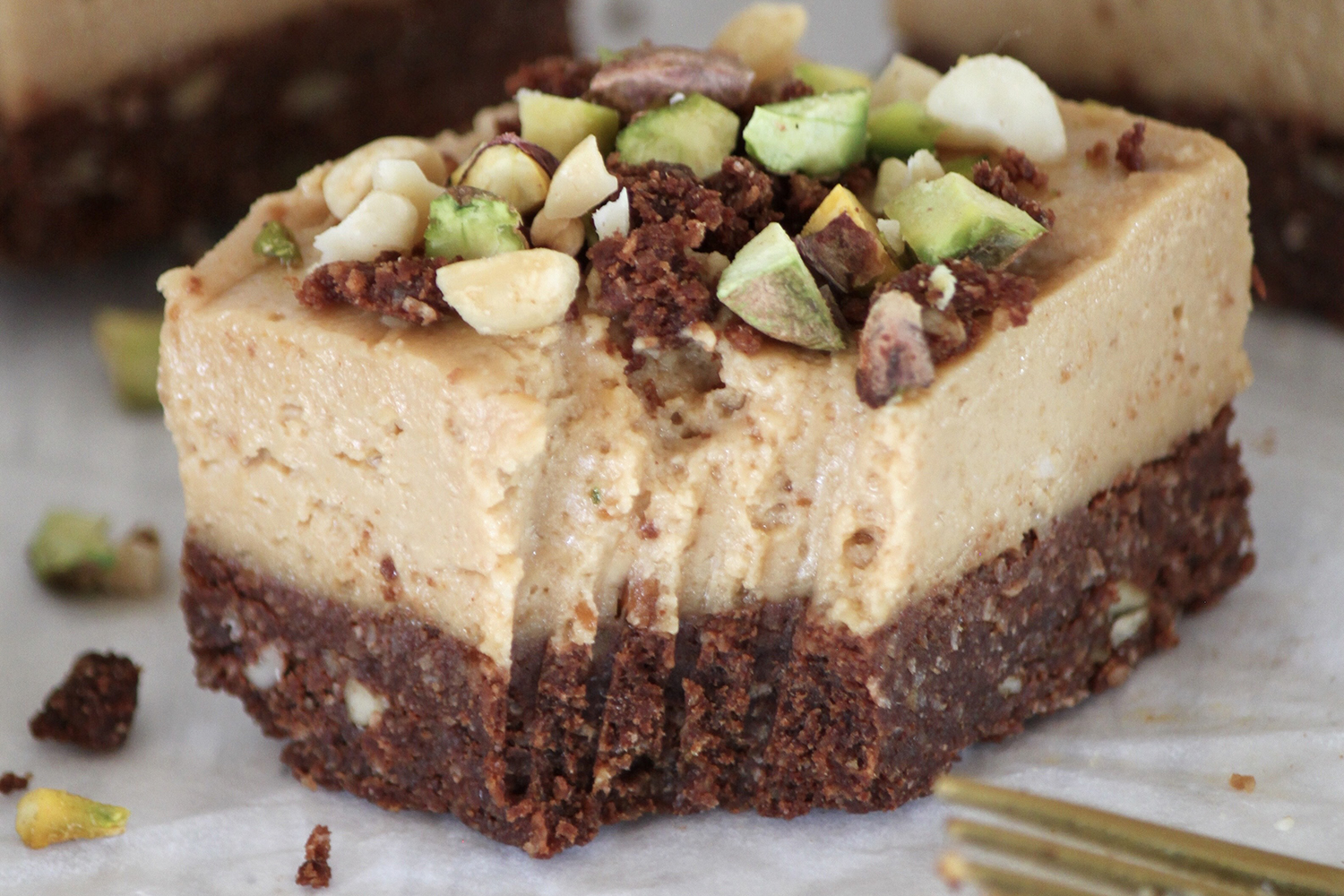
Next time you’re felling like something sweet but don’t want to go ham on over processed chocolate bars, this peanut butter cheesecake from food Instagrammer @hannah.banana182 will have you drooling for more.
Not only is it super simple to make (there are only four steps to making it), but it’s packed with protein to help build that muscle we’re always on the hunt for.
But most importantly, it tastes bloody delicious.
Enjoy.
INGREDIENTS
For the Base:
▪️1 cup Dates (soaked)
▪️1/4 cup Coconut Flour
▪️1/4 cup Cacao Powder
▪️2-3 tbs Almond Milk
For the Cheesecake:
▪️1 cup Coconut Yoghurt
▪️1/2 cup Peanut Butter
▪️1/3 cup Protein Powder
METHOD:
Add ingredients for the base to a food processor and mix until combined and forms a thick dough.
Press into a lined baking tray and set aside in the fridge.
Make cheesecake layer by adding coconut yoghurt, peanut butter and protein powder to a bowl. Stir until combined and spread over base.
Leave in the fridge to set and keep stored in the fridge for 4-5 days.
Peanut Butter Nutritional Facts
Peanut butter isn’t just kids’ stuff, says Mary Ellen Camire, Ph.D., a professor in the University of Maine’s department of food science and human nutrition. In addition to the protein a spoonful delivers, PB packs vitamin E and cholesterol-regulating monounsaturated fats, and “might even help curb your appetite,” says Camire.
Check out some of the benefits below:
It may reduce your risk of coronary death
People who eat nuts or peanuts four times a week may lower their risk of dying of coronary heart disease by 37 percent, compared with people who seldom or never eat nuts, according to a review in the British Journal of Nutrition. Eating peanut butter may lower bad LDL cholesterol while maintaining good HDL cholesterol, the authors say.
It may help prevent Alzheimer’s disease
Adding 22 milligrams (mg) of niacin to your daily diet may decrease your risk of developing Alzheimer’s. A tablespoon of peanut butter contains about 2 mg. In a study, those who consumed 22 mg daily of this B vitamin had a 44 percent lower risk of Alzheimer’s compared with those who consumed 13 mg, say researchers from Rush University Medical Center.
It’s rich in antioxidants
Roasted peanuts contain about 22 percent more antioxidants than the uncooked variety and about the same amount of cell-protecting substances as strawberries, according to researchers at the University of Florida.
It may help you stay slim
If you eat nuts at least twice a week, you’re about 30 percent less likely to gain weight than someone who never or rarely eats nuts, according to a study in the journal Obesity.













